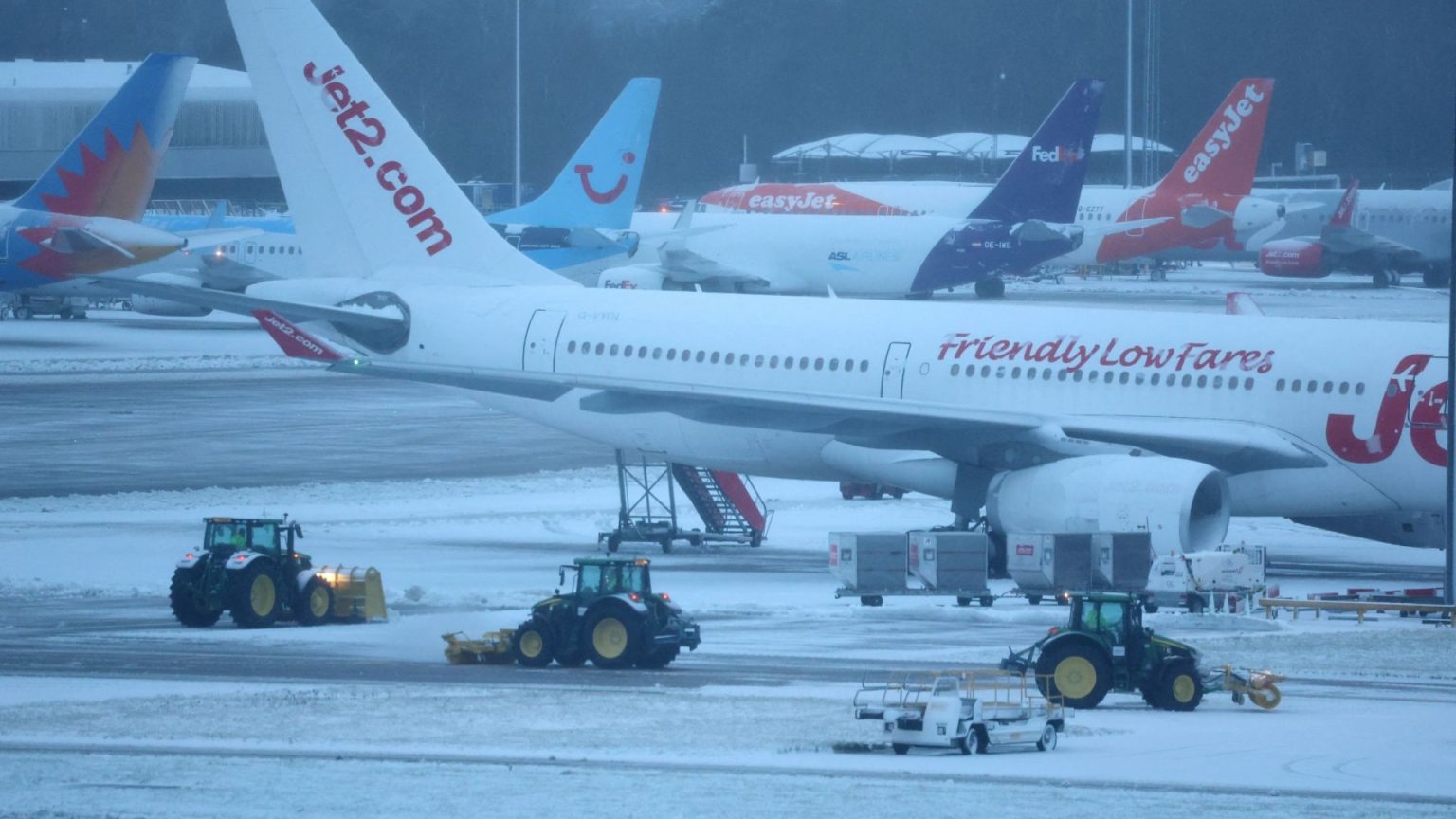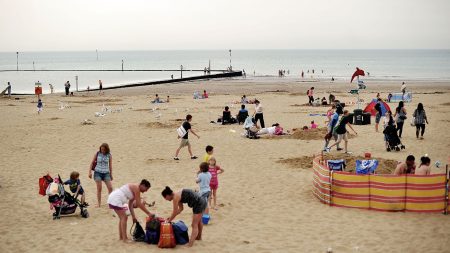Paragraph 1: Disruption at Manchester Airport Due to Heavy Snowfall
Manchester Airport, a major UK travel hub, experienced significant disruption on Thursday morning due to heavy snowfall. Both runways were temporarily closed as airport teams worked diligently to clear the snow and ice, impacting the travel plans of thousands of passengers. The airport, which handles approximately 75,000 passengers daily, urged travelers to contact their airlines for updated flight information and to allow extra time for their journeys. This closure follows a previous three-day shutdown earlier in the week, also due to adverse weather conditions. The airport’s statement emphasized passenger safety as their top priority, acknowledging the inconvenience caused by the disruption.
Paragraph 2: Reopening of Runways and Continued Delays
Despite the temporary closure, Manchester Airport confirmed that its runways reopened at 10 am on Thursday. However, the airport cautioned that residual delays were expected for both departing and arriving flights as a result of the earlier closure. Passengers were again advised to stay in contact with their respective airlines for the most up-to-date flight information. The airport expressed gratitude to its staff for their efforts in restoring operations.
Paragraph 3: British Airways’ Proactive De-icing Measures
British Airways, a major airline operating from Manchester Airport, proactively addressed the challenging weather conditions by de-icing hundreds of aircraft before takeoff. This essential safety procedure ensures that flights can operate safely in freezing temperatures and icy conditions. The airline reported de-icing 543 aircraft, highlighting the scale of the preventative measures taken. The de-icing process, typically taking around five minutes for a BA A320 jet, is carried out with passengers onboard.
Paragraph 4: British Airways’ "Snow Patrol" Initiative
British Airways implemented its "Snow Patrol" initiative, a specialized team tasked with assessing aircraft for ice and frost contamination. Spencer Norton, manager for flight efficiency and evaluation, explained the role of this team in supporting pilots by conducting thorough inspections of the aircraft fuselage. The Snow Patrol’s assessments inform decisions regarding de-icing or anti-icing procedures, ensuring optimal aircraft safety in adverse weather. This proactive approach minimizes potential flight delays and cancellations due to icy conditions.
Paragraph 5: Met Office Warnings and Predicted Temperature Plunge
The Met Office issued multiple yellow weather warnings for Thursday, indicating potential hazards such as injuries from slips and falls, as well as travel disruptions. Forecasts predicted a significant temperature drop to minus 16C overnight, particularly impacting northern England. Oli Claydon, a Met Office spokesman, described the anticipated conditions as "bitterly cold," with the lowest temperatures expected in rural Scotland and northern England, especially in areas with lying snow, clear skies, and cold airflow.
Paragraph 6: Record Low Temperatures Expected
The predicted minus 14C temperature would match the lowest temperature recorded in January of the previous year. However, a further drop to minus 16C would represent the lowest January temperature in the UK for 15 years, according to Met Office data. These exceptionally low temperatures underscore the severity of the cold snap gripping the UK, necessitating precautionary measures to ensure public safety and minimize weather-related disruptions. The combined challenges of heavy snowfall and extreme cold pose significant logistical challenges for airports and airlines, highlighting the importance of proactive planning and preparedness.











